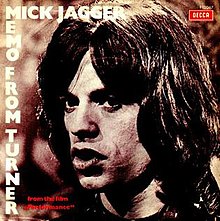
Ryland Peter Cooder is an American musician, songwriter, film score composer, record producer, and writer. He is a multi-instrumentalist but is best known for his slide guitar work, his interest in traditional music, and his collaborations with traditional musicians from many countries.
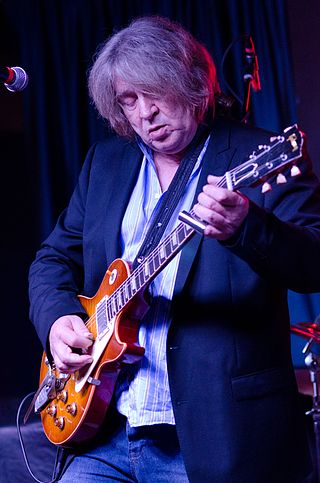
Michael Kevin Taylor is an English guitarist, best known as a former member of John Mayall's Bluesbreakers (1967–1969) and the Rolling Stones (1969–1974). As a member of the Stones, he appeared on Let It Bleed (1969), Get Yer Ya-Ya's Out! (1970), Sticky Fingers (1971), Exile on Main St. (1972), Goats Head Soup (1973) It's Only Rock 'n Roll (1974), and Tattoo You (1981).

Let It Bleed is the eighth studio album by the English rock band the Rolling Stones, released on 28 November 1969 by London Records in the United States and on 5 December 1969 by Decca Records in the United Kingdom. Released during the band's 1969 American Tour, it is the follow-up to Beggars Banquet (1968), and like that album is a return to the group's more blues-oriented approach that was prominent in the pre-Aftermath (1966) period of their career. Additional sounds on the album draw influence from gospel, country blues and country rock.

Jamming with Edward! is a 1972 album by three Rolling Stones band members accompanied by Nicky Hopkins and Ry Cooder.
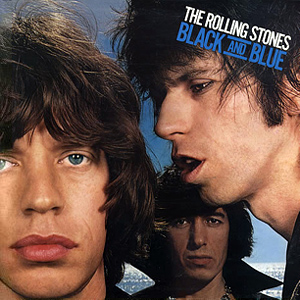
Black and Blue is the thirteenth studio album by the English rock band the Rolling Stones, released on 23 April 1976, by Rolling Stones Records.
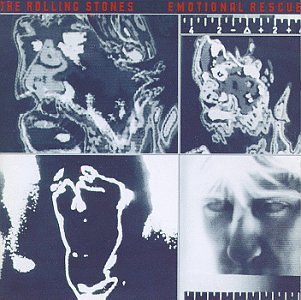
Emotional Rescue is the fifteenth studio album by English rock band the Rolling Stones, released on 23 June 1980 by Rolling Stones Records. Following the success of their previous album, Some Girls, their biggest hit to date, the Rolling Stones returned to the studio in early 1979 to start writing and recording its follow-up. Full-time members Mick Jagger (vocals), Keith Richards (guitar), Ronnie Wood (guitar), Bill Wyman (bass) and Charlie Watts (drums) were joined by frequent collaborators Ian Stewart (keyboards), Nicky Hopkins (keyboards), Bobby Keys (saxophone) and Sugar Blue (harmonica).

"Brown Sugar" is a song recorded by the English rock band the Rolling Stones. Written primarily by Mick Jagger, it is the opening track and lead single from their ninth studio album, Sticky Fingers (1971). It became a number one hit in both the United States and Canada. In the United Kingdom and Ireland, it charted at number two. In the United States, Billboard ranked it as the number 16 song for 1971.

Rolling Stones Records was the record label formed by the Rolling Stones members Mick Jagger, Keith Richards, Mick Taylor, Charlie Watts, and Bill Wyman in 1970, after their recording contract with Decca Records expired. The label was initially headed by Marshall Chess, the son of Chess Records founder Leonard Chess. It was first distributed in the United States by Atlantic Records subsidiary Atco Records. On 1 April 1971, the band signed a distribution deal for five albums with Ahmet Ertegun, acting on behalf of Atlantic Records. In the US, the albums were distributed by Atlantic until 1984. In the UK, Rolling Stones Records were distributed by WEA from 1971 to 1977 and by EMI from 1978 to 1984. In 1986, Columbia Records started distributing it in the United States and CBS for the rest of the world until 1991. It was discontinued in 1992 when the band signed to Virgin Records, but the tongue and lips logo remains on all post-1970 Rolling Stones releases.

Performance is a 1970 British crime drama film directed by Donald Cammell and Nicolas Roeg, written by Cammell and filmed by Roeg. The film stars James Fox as a violent and ambitious London gangster who, after killing an old friend, goes into hiding at the home of a reclusive rock star.

Sail Away is the third studio album by Randy Newman, released on May 23, 1972. It was produced by Lenny Waronker and Russ Titelman and issued on Reprise Records. While all of its songs were written and composed by Newman, several had already been recorded by other artists.

Singles 1968–1971 is a box set compilation of singles by the Rolling Stones spanning the years 1968 to 1971. Released in 2005 by ABKCO Records, who license the Rolling Stones' 1963–1970 recorded works, Singles 1968–1971 was the third of three successive volumes to commemorate their non-LP releases during this era.

"Love in Vain" is a blues song written by American musician Robert Johnson. Johnson's performance – vocal accompanied by his finger-style acoustic guitar playing – has been described as "devastatingly bleak". He recorded the song in 1937 during his last recording session and in 1939 it was issued as the last of his original 78 rpm records.

Metamorphosis is the third compilation album of the Rolling Stones music released by former manager Allen Klein's ABKCO Records after the band's departure from Decca and Klein. Released in 1975, Metamorphosis centres on outtakes and alternate versions of well-known songs recorded from 1964 to 1970.

Paradise and Lunch is the fourth album by roots rock musician Ry Cooder, released on June 8, 1974 on Reprise Records. The album is composed of cover versions of jazz, blues and roots standards and obscurities recorded at the Warner Brothers Studios. The final track, "Ditty Wah Ditty," showcases a duet between Cooder and jazz pianist Earl "Fatha" Hines. It was produced by Russ Titelman and Lenny Waronker. The album reached #167 on the Billboard 200.
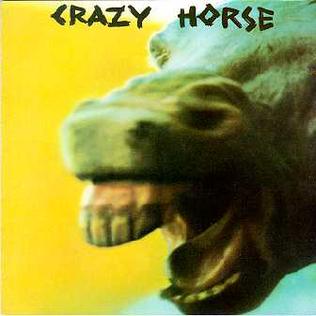
Crazy Horse is the debut album by Crazy Horse, released in 1971 by Reprise Records. It is the only album by the band to feature Danny Whitten recorded without Neil Young, and it peaked at No. 84 on the Billboard 200 album chart.
"Midnight Rambler" is a song by English rock band The Rolling Stones, released on their 1969 album Let It Bleed. The song is a loose biography of Albert DeSalvo, who confessed to being the Boston Strangler.
"You Got the Silver" is a song by the English rock and roll band the Rolling Stones from their 1969 album Let It Bleed. It was also released as the B-side to the "Let It Bleed" single in Japan.

"Sister Morphine" is a song written by Marianne Faithfull, Mick Jagger and Keith Richards. Faithfull released the original version of the song as the B-side to her Decca Records single "Something Better" on 21 February 1969. A different version was released two years later by the Rolling Stones for their 1971 album Sticky Fingers.

"Rough Justice" is a song by the English rock band the Rolling Stones that was released as a double A-side single with "Streets of Love" from their 2005 album A Bigger Bang. It is the opening track from the album. The single was released on 22 August 2005, prior to the album.

Performance is a 1970 soundtrack album to the film Performance by Donald Cammell and Nicolas Roeg. It features music from Randy Newman, Merry Clayton, Ry Cooder, Jack Nitzsche, Buffy Sainte-Marie, The Last Poets and Mick Jagger.
